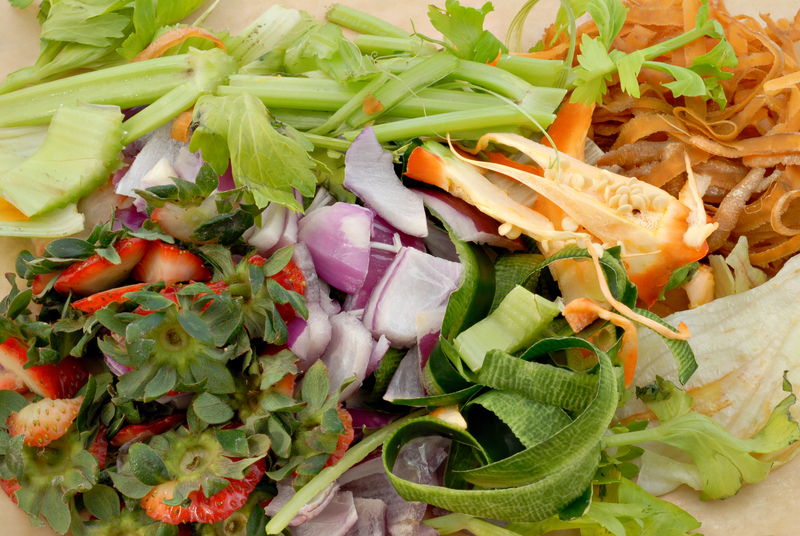Innovative Methods to Reuse Plastic Waste
Posted on 02/04/2025
Transforming Plastic Waste into Building Materials
One of the most exciting developments in the reuse of plastic waste is the transformation of plastics into building materials. Companies and researchers are finding innovative ways to use plastic waste in construction, thereby addressing both construction needs and plastic pollution.
For example, a company called ByFusion has developed a method to compress plastic waste into standardized building blocks, known as ByBlocks. These blocks can be used in a variety of construction projects, from homes to infrastructure projects. By utilizing plastic waste in this manner, it not only mitigates the waste problem but also reduces the reliance on traditional building materials such as concrete and bricks.

Plastic-to-Fuel Technology
Another groundbreaking method for reusing plastic waste is converting it into fuel. Advanced technologies have been developed to break down plastics into their original components, which can then be refined into fuels like diesel, gasoline, and kerosene.
One such technology, known as pyrolysis, involves heating plastic waste in the absence of oxygen, which breaks down the long chains of polymers into smaller molecules. The resulting oil can then be refined and used as a replacement for conventional fossil fuels. This method not only helps to manage plastic waste but also provides a renewable source of energy, reducing our reliance on non-renewable sources.
Plastic Waste in Road Construction
Using plastic waste in road construction is another innovative method that is gaining traction around the world. Countries like India and the United Kingdom are leading the way in incorporating plastic waste into their road-building practices.
The process involves shredding plastic waste into small pieces and mixing it with asphalt to create a more durable and longer-lasting road surface. This method not only reduces the amount of plastic waste but also enhances the quality of roads. Roads built with plastic waste mixtures tend to have greater resistance to weathering and wear and tear, offering a practical and environmentally friendly solution.
Ocean Plastic Cleanup and Recycling
The accumulation of plastic waste in our oceans is a critical concern. Innovative methods are being developed to not only clean up ocean plastic but also to recycle it into useful products. One notable initiative in this realm is The Ocean Cleanup project, which aims to remove large quantities of plastic waste from the ocean.
The collected plastic is then sorted and recycled into useful items such as sunglasses, which are sold to fund further cleanup efforts. This closed-loop system ensures that plastic waste is continually being removed from the environment and transformed into valuable products, creating a sustainable cycle of reuse.
Innovative Recycling Techniques
Traditional recycling methods are often limited in their ability to process different types of plastic. However, innovative recycling techniques are being developed to address these limitations and enhance the overall efficiency of plastic recycling.
One such technique is chemical recycling, which involves breaking down plastic waste into its monomers through various chemical processes. These monomers can then be re-polymerized to create new plastic products with properties identical to those of virgin plastic. Chemical recycling offers the potential to recycle a wider range of plastics, including those that are difficult to process through traditional mechanical recycling methods.
Biodegradable Plastics
While not a direct method of reusing plastic waste, the development of biodegradable plastics can play a significant role in reducing future plastic waste. Biodegradable plastics are designed to break down more quickly and safely in the environment compared to traditional plastics.
Researchers are developing various types of biodegradable plastics from renewable resources such as corn starch, potato starch, and even algae. These materials can decompose naturally under appropriate conditions, reducing the long-term impact of plastic waste on the environment.

Community-Based Plastic Recycling Initiatives
Community-based initiatives are playing a crucial role in addressing plastic waste at a local level. These initiatives often involve grassroots organizations and individuals coming together to create sustainable solutions for managing and reusing plastic waste.
For example, Precious Plastic is a global community-driven project that provides open-source blueprints for building low-cost plastic recycling machines. These machines can shred, melt, and mold plastic waste into new products, empowering communities to take control of their plastic waste and create useful items such as furniture, tiles, and accessories.
Conclusion
The innovative methods to reuse plastic waste discussed in this article offer promising solutions to one of the biggest environmental challenges of our time. From transforming plastic waste into building materials and fuel to incorporating it into road construction and ocean cleanup efforts, these methods provide practical and sustainable ways to manage and reduce plastic waste.
As technology continues to advance and awareness of plastic pollution grows, it is likely that even more innovative solutions will emerge. By embracing these methods and supporting initiatives aimed at reusing and recycling plastic waste, we can make significant strides toward a more sustainable and environmentally friendly future.
